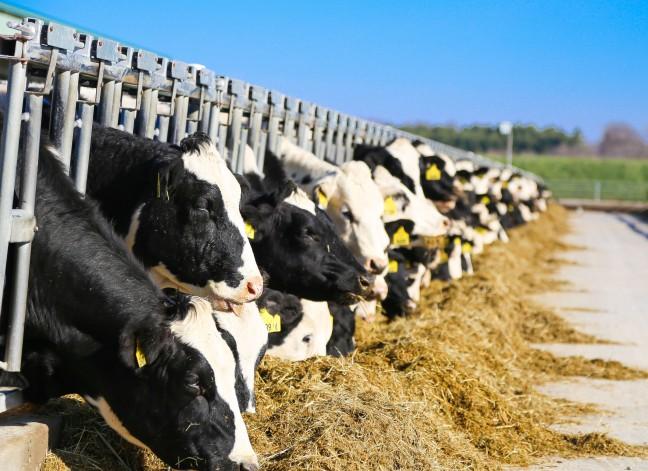It’s no secret that a good proportion of President Donald Trump’s 2016 voters were rural, small-town farmers who felt he would grant them more recognition and aid. A year and three months into Trump’s presidency, the economy is at a high, but farmers are experiencing an all-time low.
In response to Trump’s recent tariffs on aluminum and steel, China has established scores of retaliatory tariffs, most of which will affect agricultural commodities.
Wisconsin farmers may be hit especially hard. For instance, Wisconsin ranks 13th in U.S. soybean production and China purchases one-third of all American-produced soybeans. The Chinese’s new retaliatory tariffs on soybeans will be detrimental to the Wisconsin economy — and soy is only the beginning.
Wisconsin Republicans denounce Trump’s tariffs, cite consequences for Wisconsin economy
China has also implemented a 25 percent tariff on pork products. Around 25 percent of pork exported from the U.S. comes from Wisconsin farms. Speaking with Wisconsin Public Radio, vice president of the Wisconsin Pork Association Tammy Vaassen said, “They’re very dependent on our export opportunities. If we take away some of those opportunities, we certainly need to add to that or we’re going to lose farmers based on the financial implications that will occur.”
This statement reigns true not just for pork, but also for cranberries. Wisconsin ranked first in the U.S. for exports of cranberries last year and Wisconsin cranberry farmers were trying to create new markets in China to combat the surplus of cranberries in the U.S. which lower prices caused.
The new 15 percent tariff on cranberries will prove disastrous for Wisconsin farmers. Many experts are also fearful for how the Wisconsin ginseng market will fair with retaliatory tariffs as well.
New tariffs on steel, aluminum are Trump’s haphazard apology to his most loyal constituents
Most pertinent to Wisconsin are the dairy farmers who have been suffering from decreasing prices for the past four years. More recently it has been reported that some dairy farmers are considering suicide, hoping their life insurance payouts are enough to save the farm. Leading dairy farm organizations are providing suicide hotline numbers in their paperwork with farmers.
According to the Wisconsin Department of Agriculture, Trade and Consumer Protection, China is the third largest market for Wisconsin exports. So all farmers, whether they specialize in livestock or produce, will be harmed.
Farming as a profession is often ignored and under-appreciated, so to hear the stories of farmers desperately trying to save their farms is truly heartbreaking. A large part of Trump’s campaign was appealing to farmers and small towns — yet as a whole, the agricultural world is not receiving the treatment Trump promised or the one it rightfully deserves.
Trump’s new tariffs detrimental to American consumers, international relations
One has to wonder what will happen if Trump truly loses his support from small-town farming communities — a major contribution to his voting demographic in 2016. With midterm elections taking place this year, it is likely Democrats will fill up Congress once again — a common occurrence when there is a Republican president.
Perhaps the Democratic party could take this as an opportunity to expand its following to small towns and farming communities. It could try to stop Trump’s destructive trade and tariff policies and help farmers in distress. For a man obsessed with money, one would think Trump would have a better understanding of how to improve the industry he most appealed to during his election.
Overall, it seems that due to Trump’s own personal desire to “Make America Great Again,” he is turning away foreign partners and essentially damaging the very industry he promised to help most.
Courtney Degen ([email protected]) is a freshman majoring in political science and intending to major in journalism.














